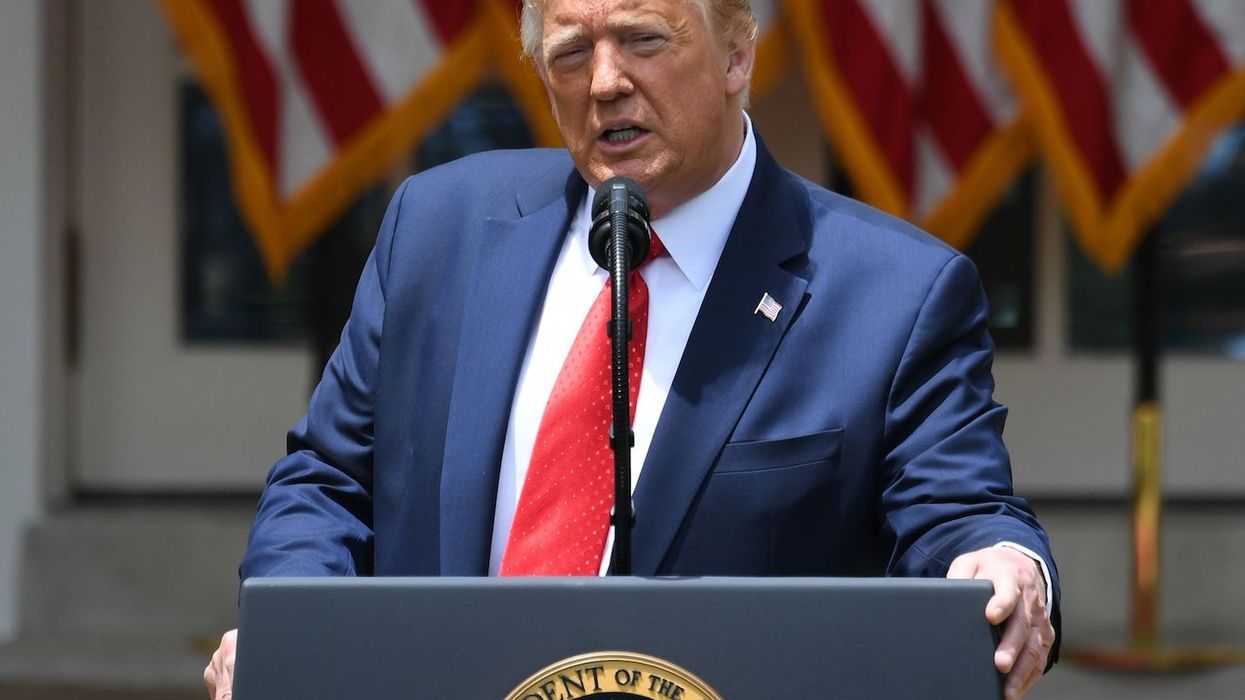
President Donald Trump speaks at the event where he will sign an executive order on police reform, in the Rose Garden of the White House in Washington, D.C., June 16, 2020. (Photo by SAUL LOEB/AFP via Getty Images)

'It's a step in the right direction'
President Donald Trump signed an executive order Tuesday aimed at reforming police practices in America after a series of high-profile police killings sparked nationwide protests and riots, CNBC reported.
Trump, who is opposed to growing calls to defund police departments, is calling for increased transparency and accountability for police misconduct, a limit on the use of chokeholds, and increased use of non-police personnel to deal with issues related to mental health or drug addiction.
The order, titled, "Safe Policing for Safe Communities," acknowledges instances of police abuse and brutality and the negative impact that has had on community relationships with police.
It establishes a national certification and credentialing system for law enforcement agencies; creates a federal database to track officers credibly accused of wrongdoing; discourages the use of chokeholds unless an officer's life is in danger; and encourages Congress to pass further police reforms.
Before announcing the order, President Trump said he met with the families of victims, including Ahmaud Arbery, Botham Jean, Antwon Rose, Jemel Roberson, Atatiana Jefferson, Michael Dean, Darius Tarver, Cameron Lamb, and Everett Palmer.
"These are incredible people ... and it's so sad. Many of these families lost their loved ones in deadly interactions with police. To all of the hurting families, I want you to know, all Americans mourn by your side. Your loved ones will not have died in vain," Trump said, according to CNN.
S. Lee Merritt, the civil rights attorney who has represented some of the aforementioned families, said the order is "a step in the right direction."
"It's too incremental to have, you know, sweeping impact," Merritt said, according to PBS. "But it's things that we need to have done among the myriad of things that we need to address this crisis. It's not a cure. But it is a way to deal with the damage from the fallout."